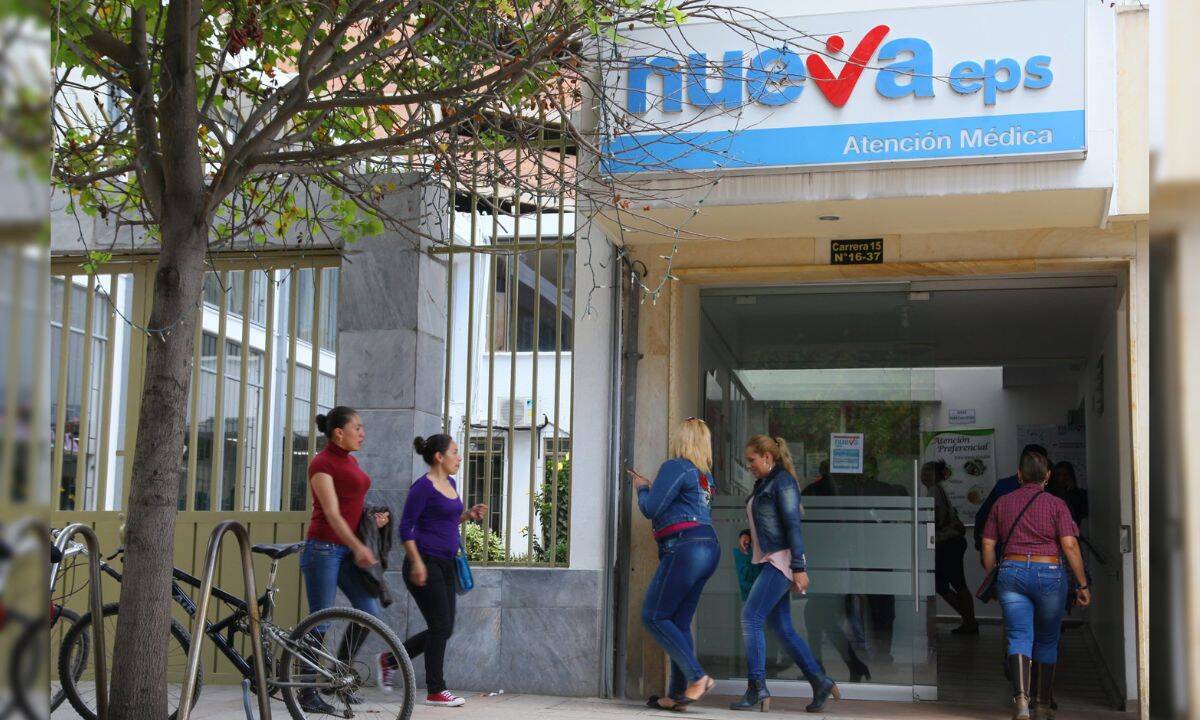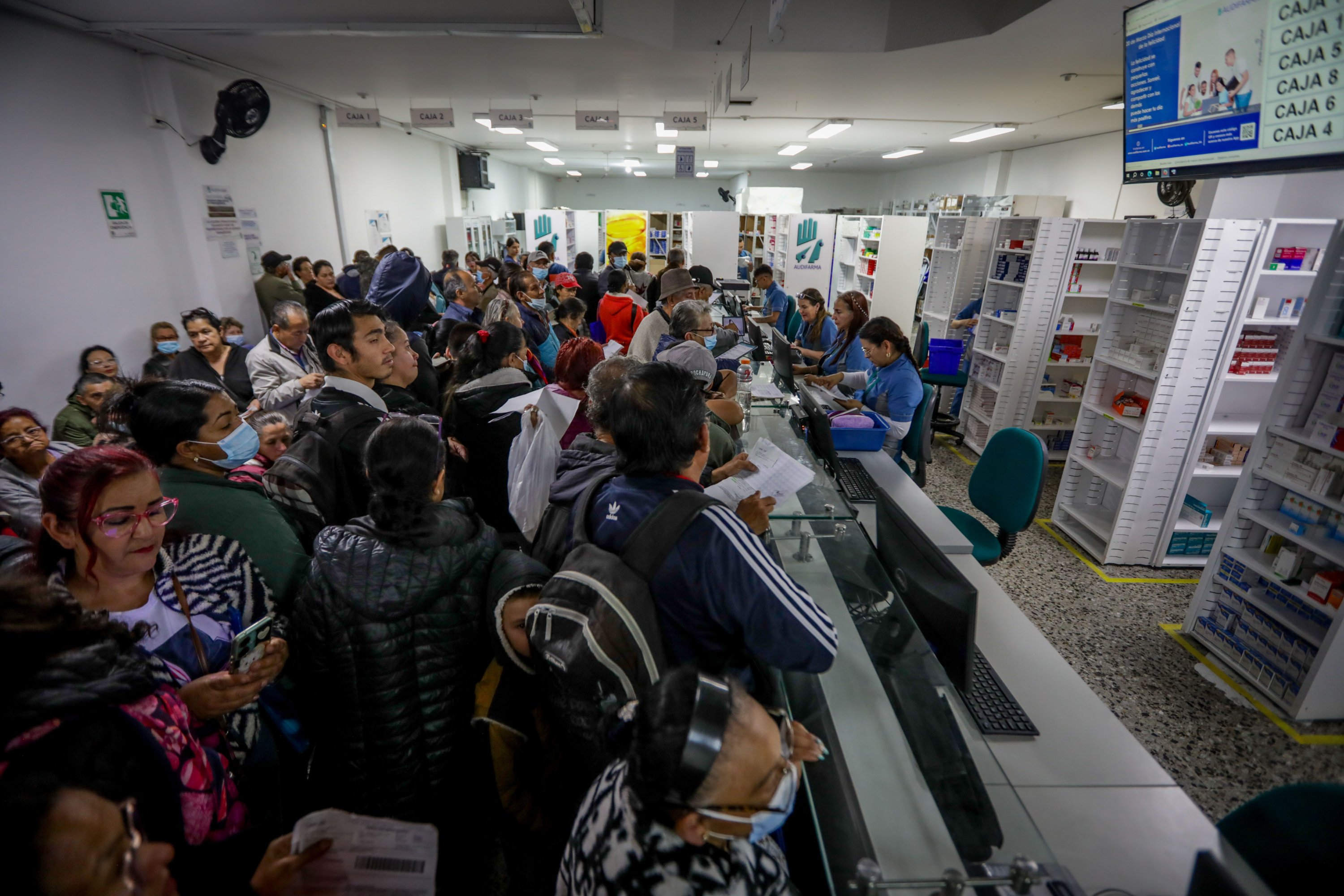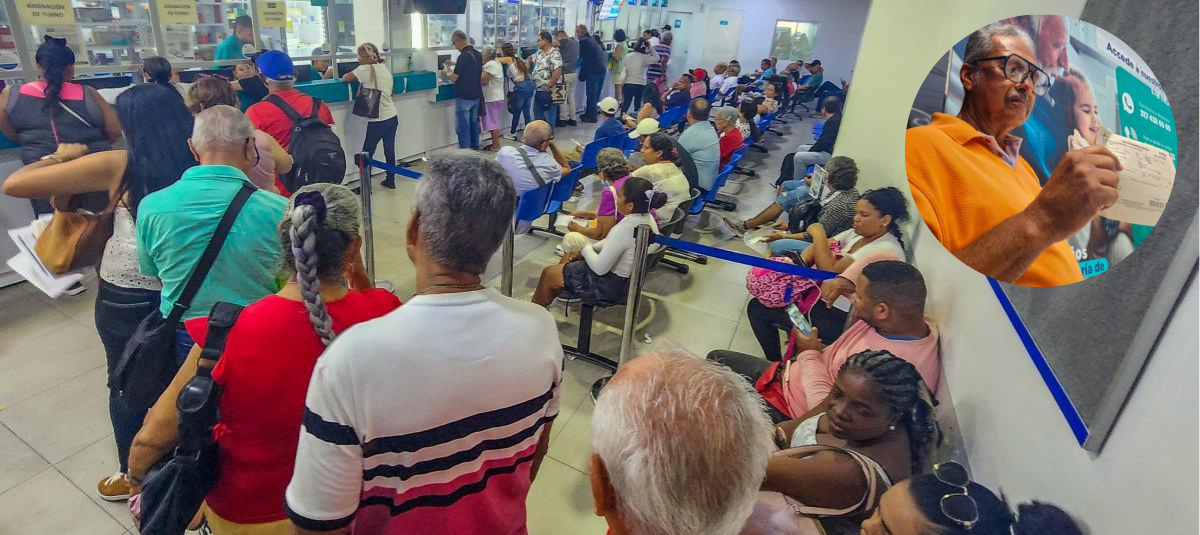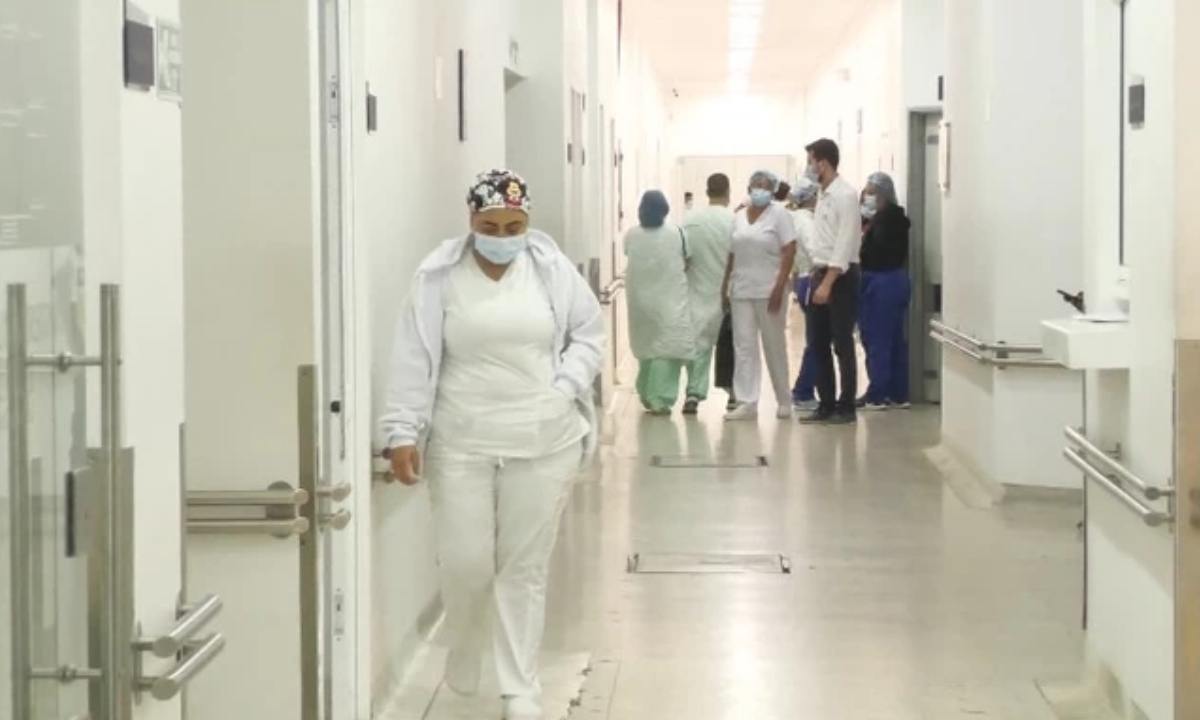Has the healthcare system deteriorated during President Gustavo Petro's administration? This is what the data says.

Before 2022, the Colombian healthcare system faced several challenges to overcome. These included problems with efficiency and resource management; poor coverage in rural and remote areas; administrative barriers that hindered access to the right to health; and debts accumulated since the pandemic. Even so, the country's healthcare and social security system was considered a global example for its coverage of almost the entire population, its comprehensive benefits plan—which includes publicly funded therapies—and its extremely low out-of-pocket costs compared to other countries in the region and around the world.
Unlike other nations, in Colombia, thousands of people were hospitalized for weeks, even months, during the COVID-19 pandemic and left the hospitals without any major debt. Those suffering from chronic illnesses like cancer, regardless of their stage of illness, were treated in some of the best clinics in Latin America by some of the world's leading specialists. Pharmaceutical managers and other stakeholders delivered medications through the institutional channel, even when there were clear logistical difficulties.
These benefits—few compared to other healthcare systems around the world—allowed our country to be recognized in international rankings. In 2021, the Health Care Index published by the specialized magazine Ceoworld ranked Colombia 31st out of 89 healthcare systems evaluated worldwide. A 2022 study by the Colombian Association of Hospitals and Clinics (ACHC), which analyzed the systems of 94 countries around the world, ranked ours 39th. That same year, The Economist's Health Inclusion Index ranked us 22nd out of 40 countries evaluated, most of them high-income. However, all these indicators have deteriorated.
In 2024, the Ceoworld index placed us in 81st place, while the Health Inclusion Index placed us in 26th. Although the ACHC has not renewed its study, it has broadly questioned the deteriorating conditions for providing health services in the country and the payment to hospitals and clinics, which have been deteriorating and whose backlogs continue to grow. However, these are not the only areas where the system has deteriorated.

Despite its shortcomings, the Colombian healthcare system was recognized globally. Photo: iStock
Over the past eight years, there has been a sustained increase in PQRS, with a notable peak in the last three years, according to a report by the Así Vamos en Salud Observatory, which compiles data from the Superintendency of Health. In 2017, 449,436 cases were recorded, while in 2024 the figure rose to 1,604,968, an increase of more than 250 percent. For the first time in the history of these records, 2024 surpassed 1.5 million complaints, evidencing a significant increase in citizen dissatisfaction with the healthcare system.
In the case of PQRS (Public Health Insurance Companies) in intervened EPSs, the situation worsens. For Nueva EPS and Sanitas, the report documents increases of 47 and 46 percent, respectively, in the number of complaints following their intervention. The same is true for other entities such as Famisanar, SOS, and Emssanar, where state control measures have failed to reduce user dissatisfaction and, in some cases, have coincided with unprecedented spikes in complaints.

The government currently controls nine health insurance companies through the Supersalud (Health Superintendency). Their indicators have not improved. Photo: Luis Lizarazo García. EL TIEMPO Archive
The Colombian government, through the Health Superintendency, controls approximately 60 percent of healthcare system users through the nine intervened health insurance companies and one health insurance company under special surveillance. This means that more than half of those enrolled in the Colombian healthcare system are under the direct management or supervision of President Gustavo Petro's government. Petro has insisted that the problem lies in resource management, but after a year under the control of these companies, the situation has worsened.
On the other hand, data issued by the Constitutional Court and collected by the Así Vamos en Salud Observatory show varying trends in the filing of writs of protection over the years. However, last year saw a significant increase in the use of writs of protection to guarantee the right to health, both in the number of mechanisms filed and those granted in different departments of Colombia.
In 2020, there was a significant decline in the use of this legal action, followed by a gradual recovery starting in 2021 and sustained growth in 2023 and 2024. "This increase suggests greater demand for this legal remedy, possibly due to deficiencies in the provision of health services and the violation of other fundamental rights," the report adds.
By 2024, the total number of guardianships increased by 34 percent compared to the previous year. However, analyzing the monthly trend, even more pronounced increases are observed, such as the one recorded in April 2024, when the number of guardianships filed grew by 135 percent compared to the same month in 2023.
In the last three years alone, between 2022 and 2024, guardianships increased by 69.9%, reaching 265,552 last year.

A historic record of complaints and lawsuits is a snapshot of the collapse of the health system. Photo: MAURICIO MORENO
This crisis has created a chronic and terminal illness that has left the healthcare system in intensive care. This has worsened since the government set a lower rate than experts recommended for the increase in the UPC (the amount paid per user), a situation the Constitutional Court has ordered corrected.
In fact, the president himself stated two years ago, in an interview with journalist Daniel Coronell, that if the reform wasn't approved, the health system would continue to deteriorate and the EPSs would go bankrupt. "I let what's happening happen, and then 'shu, shu, shu.' That's a domino effect, and there's no need to delay payments. Simply put, the EPS goes bankrupt, and the members have to move on to the remaining ones, and that one collapses," the president said when asked.
A cure that never comes? For experts consulted by EL TIEMPO, the disease currently straining the healthcare system requires urgent treatment, and the most important medication is resources, which must be injected to pay off the ever-increasing debts. However, specialists agree that, for now, there is no interest in treating this disease.
Fernando Ruiz, former Minister of Health, warns that "a catastrophe has been induced in the Colombian health system." The former official, who led the system's management during the COVID-19 pandemic, asserts that we reached this point "due to a destructive vision... that a crisis had to be generated in the health system." In fact, Ruiz emphasized that the government failed to issue the Maximum Budgets in 2022 on time, despite his administration having made the resources available and a clear course of action. "The resources were invested in other things. This year, we are coming to cover those deficits when the system has already suffered serious damage," he said.
The former minister asserted that in August 2022, the deficit was manageable and that a "rescue plan" was in place. Furthermore, the so-called "final point agreement" had been implemented, allowing for the direct payment of more than 8 billion pesos to hospitals. "All of that went down the drain with the induced underfunding," he noted. At the end of 2024, according to the Comptroller's Office, EPS liabilities reached $32.9 billion pesos.

Today, the system faces an unprecedented crisis that only worsens over time. Photo: Vanexa Romero EL TIEMPO
In response, Augusto Galán, also a former minister and director of the Así Vamos en Salud observatory, also stated that the profound deterioration of the Colombian healthcare system has been driven by ideological decisions, structural underfunding, and failures in the management of the intervened health care providers. "The general population feels that their healthcare system has deteriorated, that it is not being served as it once was," he said, clarifying that while challenges existed in the past, the current situation represents a significant regression.
One of the most obvious symptoms of this collapse, according to the former minister, is the dramatic increase in requests, complaints, claims, and writs of protection from users. "This has been reflected, from the population's perspective, in a very significant increase in writs of protection," he stated. He also denounced a loss of quality in services, especially in timely access, which he considers an essential part of dignified care.
But his most serious accusation relates to underfunding. "Never in the country's recent history have we seen the Constitutional Court so active in protecting the fundamental right to health," he explained, referring to rulings issued by the high court that, according to Galán, the government has ignored or partially complied with, such as the recalculation of the Per Capita Payment Unit (UPC).
For public health specialist and doctor Luis Jorge Hernández, the most worrying thing is that while the system deteriorates, the government lacks genuine concern for public health. "Yes, this government has deteriorated the health system. There are multiple indicators that show deterioration," he says.
Although he acknowledges that the model based on mixed public-private insurance had flaws, he insists that it "worked." What has happened over the past three years, he says, is a progressive loss of clarity in the management of care, in addition to systematic delays in payments to clinics, hospitals, and healthcare personnel.
In his opinion, one of the most significant failures of the current administration is its management of primary health care: "Three years were wasted, and a genuine primary care system was not achieved, one that, moreover, was not dependent on the reform." According to him, the basic health care teams in the territories have been used for political purposes: "They have more of a connotation of organizing cadres for the upcoming elections," he complains.
For his part, former Health Superintendent Conrado Gómez agreed that while "the underlying problem isn't this government's, it's not the government that's solving it either." In his view, like Galán's, the focus of political discussion has not been on patient well-being, but rather on administrative and financial structures. "While many people are concerned about health care and whether it's improving or not, I don't think that's the concern here. The concern has centered around resources and the EPS," he reflected.
For Gómez, the system needs structural adjustments, not further delays. “We can't continue like this; we have to resolve them. And I don't know if this government has the capacity, the support, or the power to rally around them,” he expressed skepticism. The expert also questions the political viability of the reform still being discussed in Congress: “First, we have to see whether it's a solution or not. And the other thing is whether it will have the capacity to push through a reform that will resolve these problems.”

More than 1.6 million complaints are the most visible symptom of the health crisis. Photo: Valle del Cauca Governor's Office
Andi President Bruce MacMaster agrees with this view, clearly stating that while "the system has been struggling with funding problems for many years," the crisis up until these past three years had not significantly affected patient care. "At this point, the crisis, which was financial in nature, has become a major humanitarian crisis. The system is simply unable to withstand the pressure the national government has placed on it," MacMaster notes.
For him, "a very worrying blow has been dealt to the system and its capacity to care for patients," and addressing this deterioration will require solutions and visions from all stakeholders in the system, something that was attempted at the last Andi Health Forum, held a few weeks ago in the city of Cartagena, where all key stakeholders were present, except the government.
In this regard, Ana María Vesga, president of the Acemi EPS union, explained that the health system currently faces two major problems: there is no technical agreement on the financial aspect, which implies recognizing that the UPC is insufficient and must be corrected; and secondly, we must address the reality of 30 million Colombians currently in intervened EPSs who have not seen the service improve as promised by the government.
“Interventions cannot be perpetuated, and users need security and care. The necessary conversation is how to oxygenate the system with immediate liquidity measures and long-term measures accompanied by two fundamental discussions: the adaptation of the private insurance model with more than 50% of the population under state control, and the country's capacity to deliver the benefits plan we have in the face of resources that will always be limited. I believe we are experiencing the most critical moment for the system, but also because of this and because there are many lessons learned, we must be able to address these issues among all stakeholders. The system has already changed; now it's about turning that change into an opportunity for improvement,” Vesga asserted.
In any case, the government of President Gustavo Petro is the attending physician who has the capacity to cure the system, and so far, the treatments it has implemented have only made it worse, and consequently, affected the health of millions of Colombians.
Environment and Health Journalist
eltiempo





